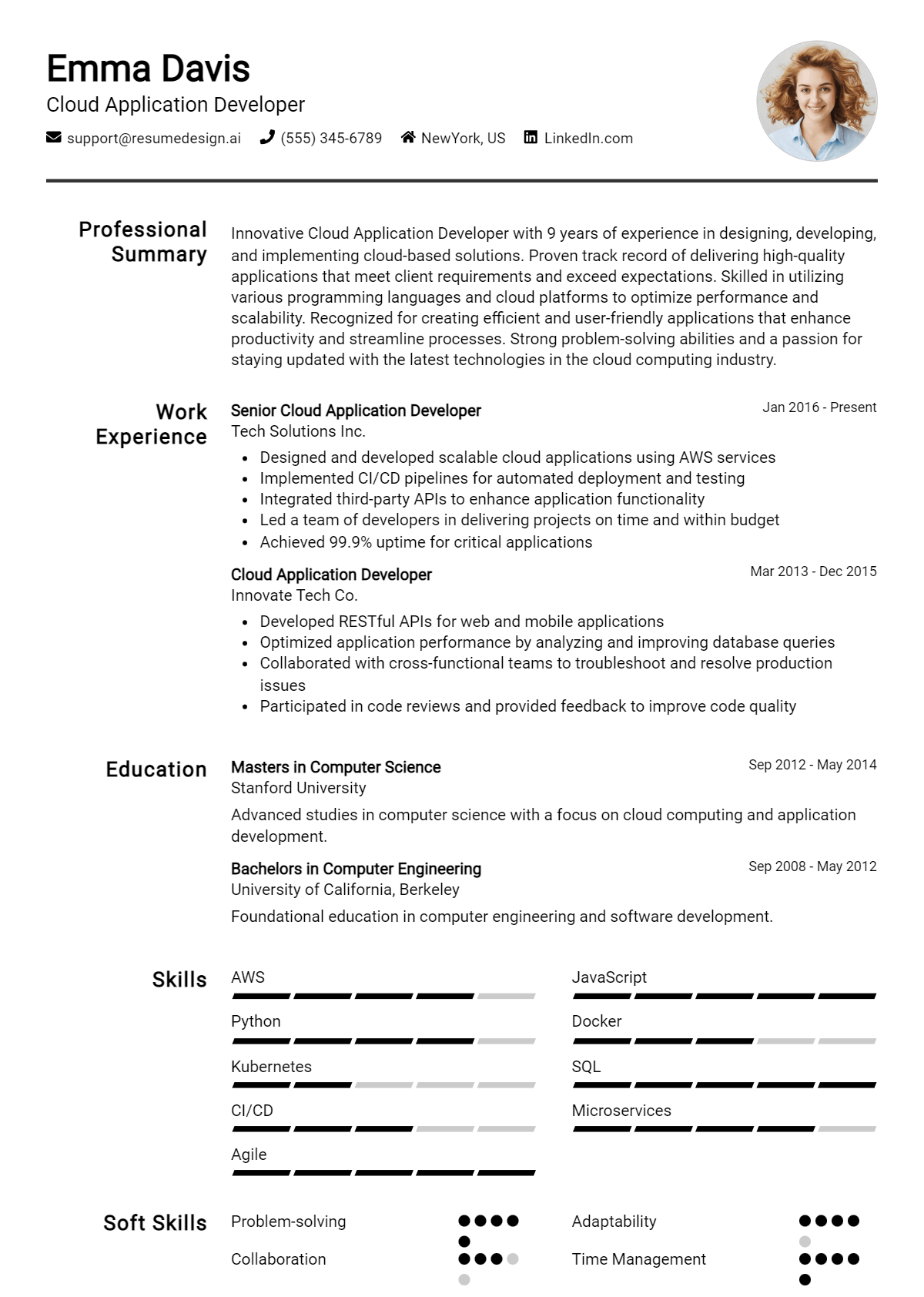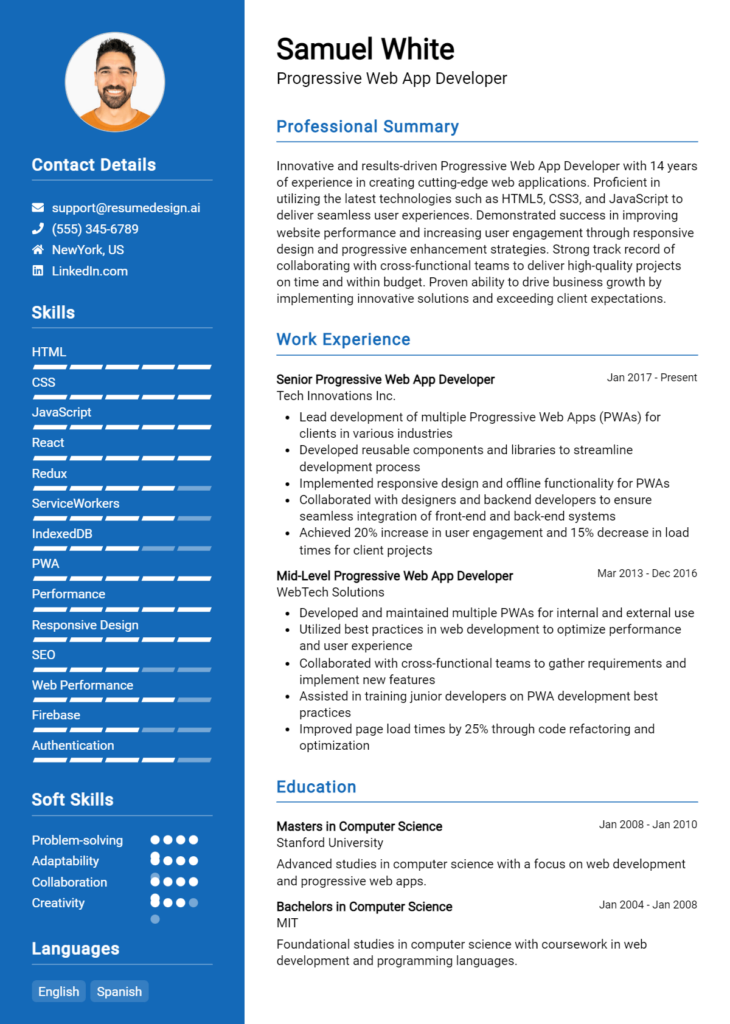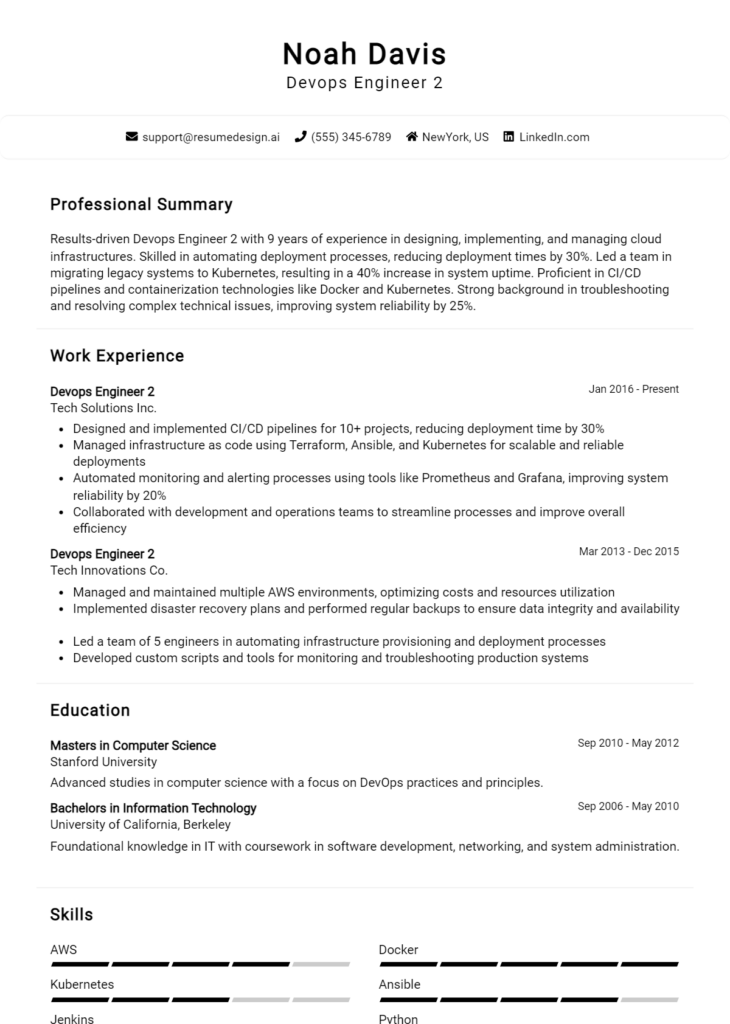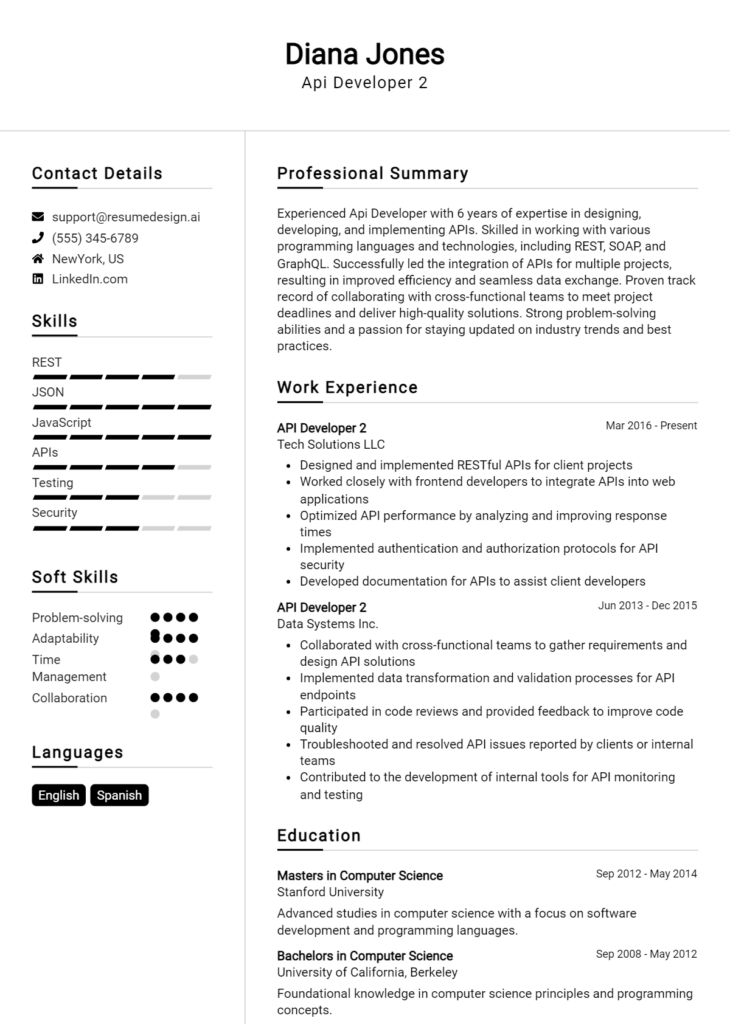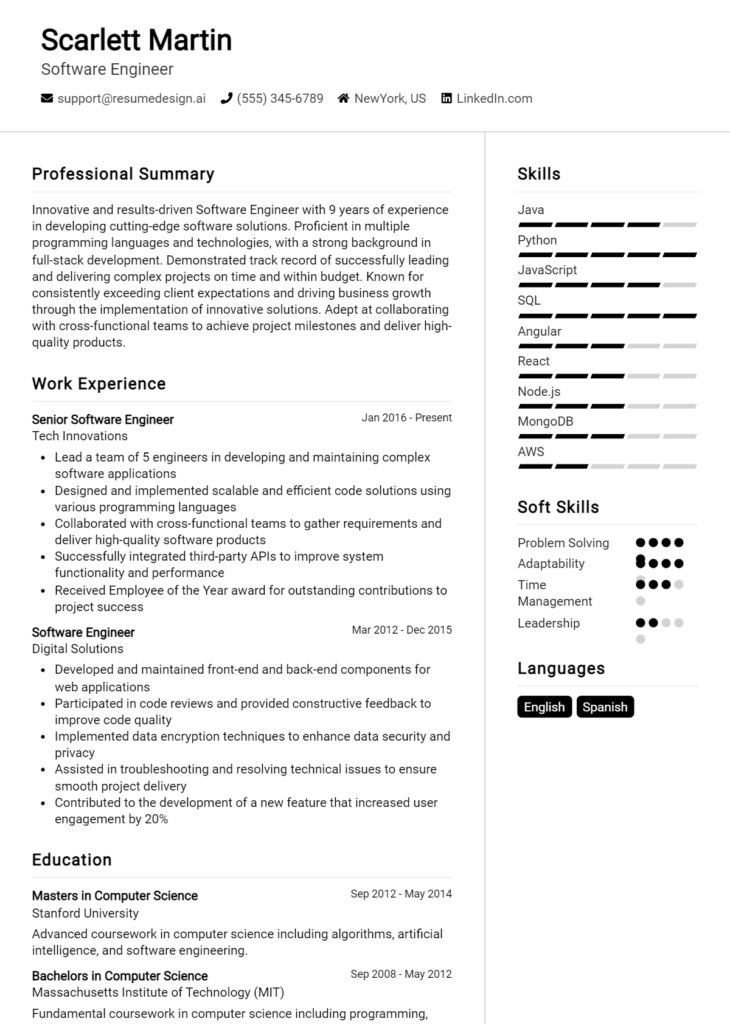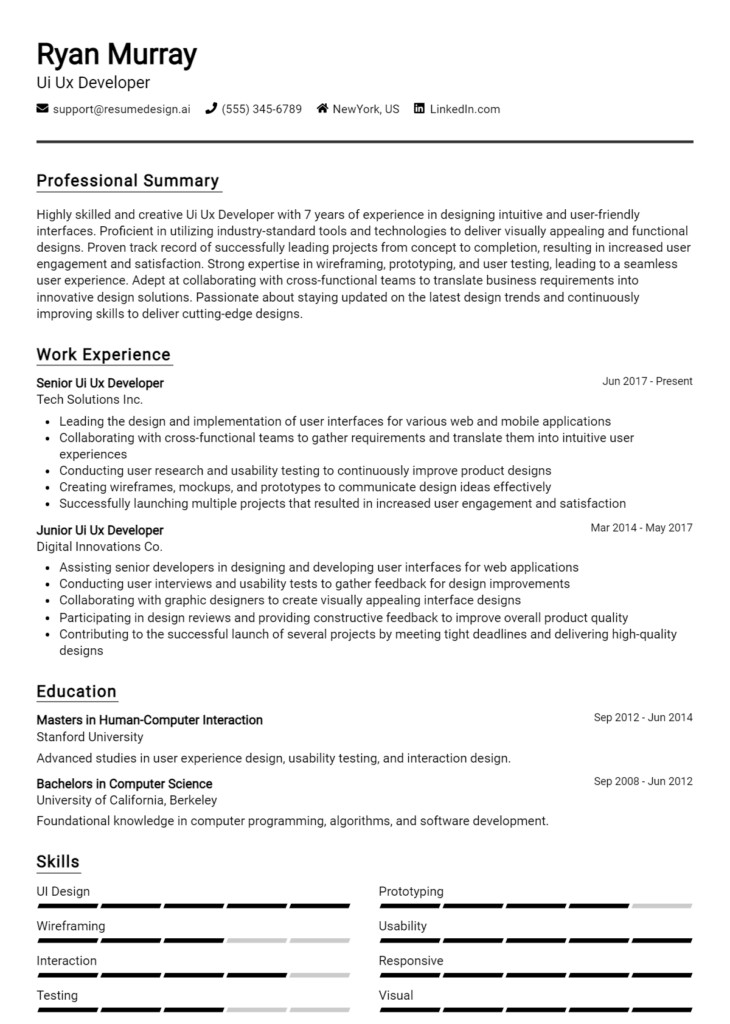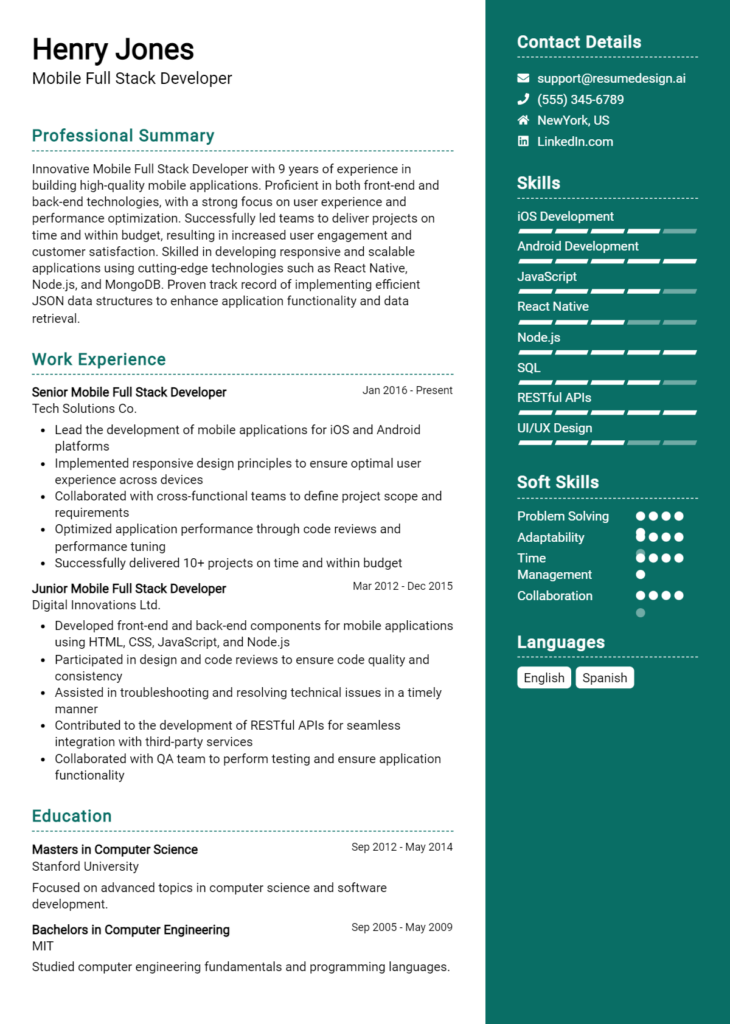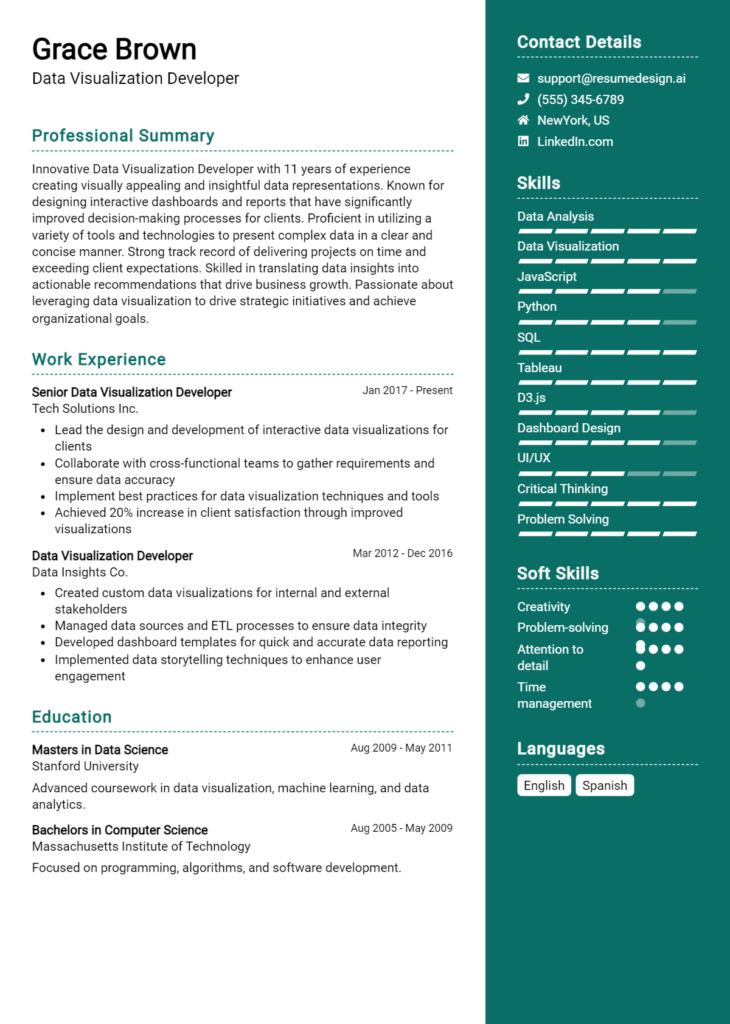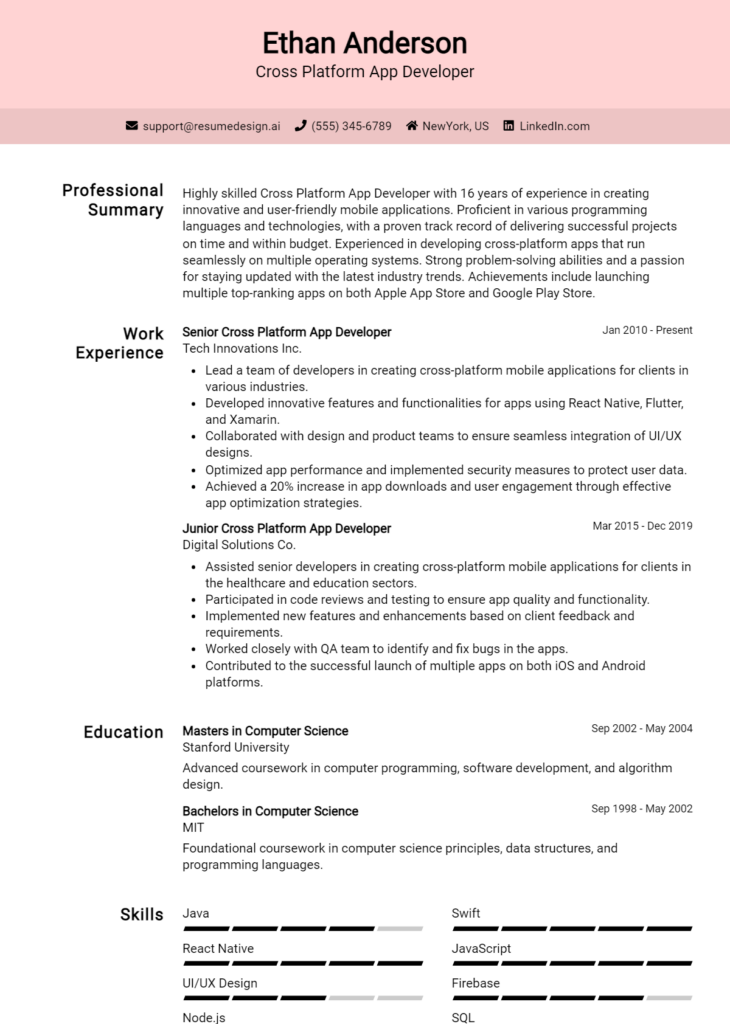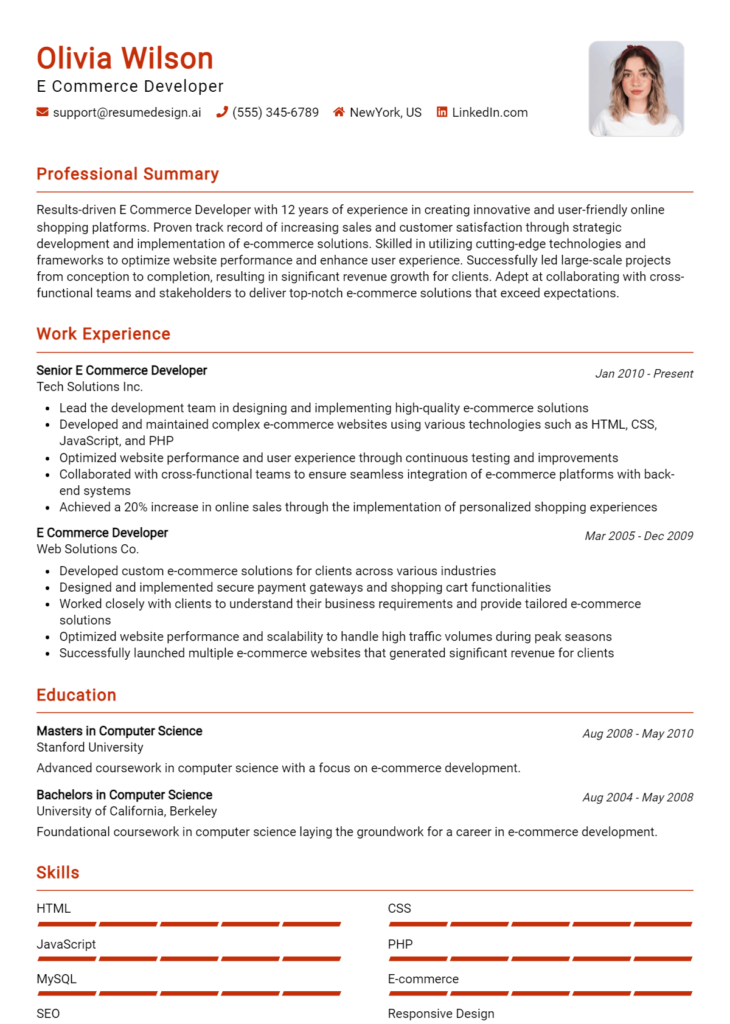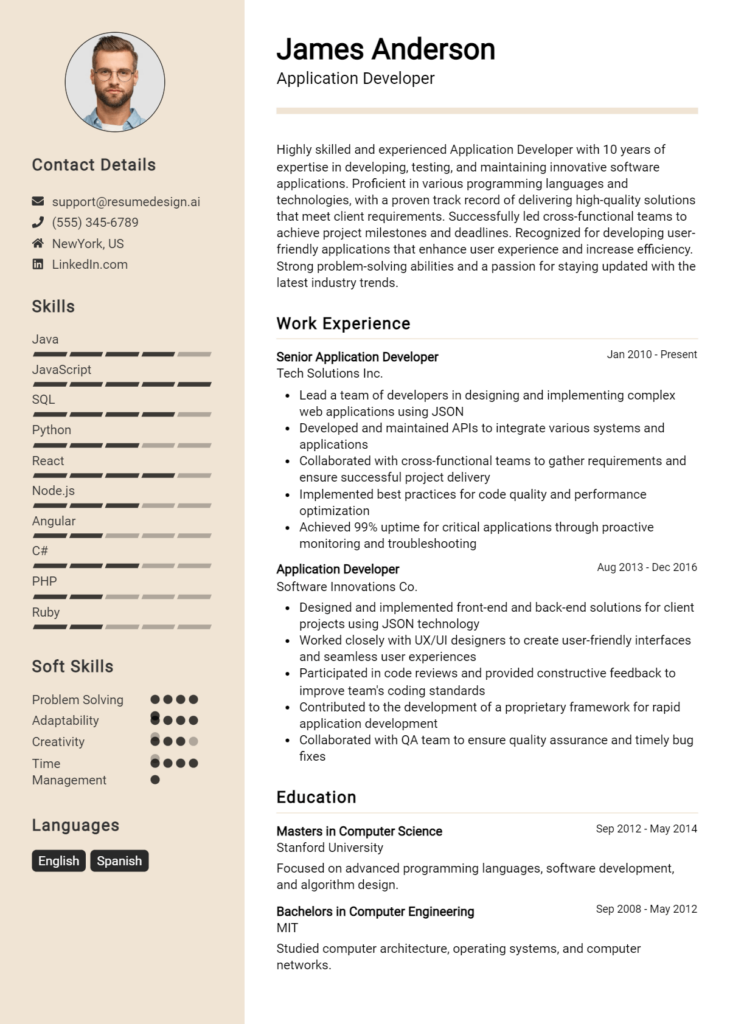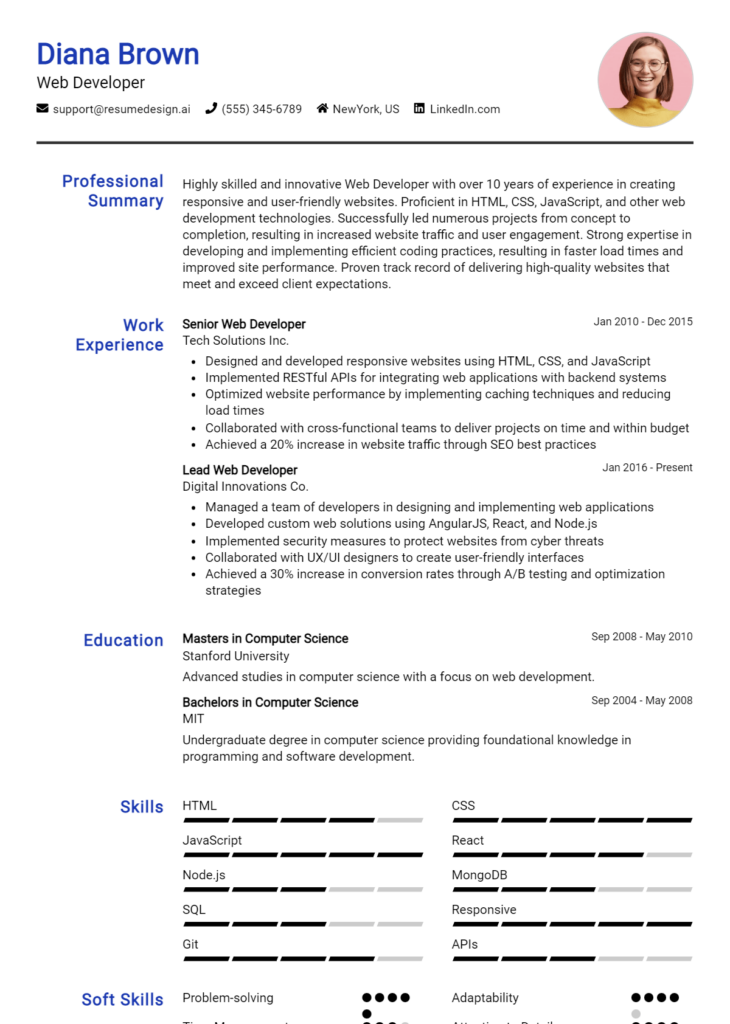Cloud Application Developer Core Responsibilities
A Cloud Application Developer plays a crucial role in designing, developing, and deploying applications in cloud environments, effectively bridging IT, operations, and business functions. Key responsibilities include understanding user requirements, implementing cloud solutions, and ensuring application performance and security. Essential skills encompass technical expertise in cloud platforms, operational knowledge for efficiency, and problem-solving abilities for troubleshooting issues. These competencies are vital for achieving organizational goals, and a well-structured resume can effectively highlight these qualifications to potential employers.
Common Responsibilities Listed on Cloud Application Developer Resume
- Design and implement scalable cloud-based applications.
- Collaborate with cross-functional teams to gather requirements.
- Ensure application security and compliance with industry standards.
- Optimize application performance and scalability.
- Develop and maintain cloud infrastructure and services.
- Conduct testing and debugging of applications.
- Monitor and troubleshoot application issues in production.
- Document application architecture and processes.
- Stay updated with emerging cloud technologies.
- Provide technical support and training to end-users.
- Integrate third-party services and APIs.
- Participate in code reviews and contribute to team knowledge sharing.
High-Level Resume Tips for Cloud Application Developer Professionals
In today’s competitive tech landscape, a well-crafted resume is essential for Cloud Application Developer professionals looking to make their mark. Your resume often serves as the first impression you make on potential employers, making it crucial that it effectively reflects not just your technical skills but also your achievements in the field. A resume that stands out can open doors to interviews and job offers, highlighting your ability to develop scalable and efficient cloud-based applications. This guide will provide practical and actionable resume tips specifically tailored to help Cloud Application Developer professionals shine in their job search.
Top Resume Tips for Cloud Application Developer Professionals
- Tailor your resume to match the specific job description, using relevant keywords and phrases that align with the employer's requirements.
- Showcase your relevant experience by including specific projects where you contributed to cloud application development, emphasizing your role and impact.
- Quantify your achievements with metrics that demonstrate your effectiveness, such as the percentage of improved performance or reductions in costs due to your contributions.
- Highlight industry-specific skills, including familiarity with cloud platforms like AWS, Azure, or Google Cloud, as well as programming languages such as Python, Java, or Node.js.
- Incorporate certifications relevant to cloud technologies, such as AWS Certified Developer or Microsoft Certified: Azure Developer Associate, to bolster credibility.
- Use action verbs to describe your responsibilities and accomplishments, making your contributions dynamic and engaging.
- Include a summary section at the top of your resume that encapsulates your expertise and career goals, making it easy for recruiters to grasp your value quickly.
- Keep your resume concise and focused, ideally one page for less experienced candidates, while ensuring key information remains easily accessible.
- Utilize a clean and professional layout that enhances readability and keeps the focus on your qualifications.
By implementing these tips, Cloud Application Developer professionals can significantly increase their chances of landing a job in the field. A well-structured and tailored resume not only showcases your skills and achievements but also demonstrates your commitment and suitability for the role, ultimately setting you apart in the competitive job market.
Why Resume Headlines & Titles are Important for Cloud Application Developer
In the competitive landscape of cloud application development, a well-crafted resume headline or title serves as the first impression a candidate makes on hiring managers. These brief yet powerful phrases encapsulate a candidate's key qualifications and professional identity, allowing them to stand out in a sea of applicants. A strong headline can immediately grab attention, summarizing skills, experience, or unique accomplishments in a concise manner that is directly relevant to the job being applied for. By effectively communicating value right from the outset, candidates can significantly increase their chances of being noticed and considered for the role.
Best Practices for Crafting Resume Headlines for Cloud Application Developer
- Keep it concise: Aim for a headline that is no longer than 10-12 words.
- Be role-specific: Clearly indicate your expertise in cloud application development.
- Highlight key skills: Include relevant technical skills or tools that set you apart.
- Showcase accomplishments: If applicable, mention notable projects or achievements.
- Use impactful language: Choose strong action verbs and adjectives to convey confidence.
- Avoid jargon: Make sure the headline is understandable to a wider audience, including HR professionals.
- Tailor for the job: Adjust your headline based on the specific requirements of the job you're applying for.
- Stay professional: Maintain a formal tone that reflects your professional identity.
Example Resume Headlines for Cloud Application Developer
Strong Resume Headlines
"Certified Cloud Application Developer with 5+ Years of Experience in AWS"
"Full-Stack Developer Specializing in Scalable Cloud Solutions"
"Innovative Cloud Application Engineer with Proven Success in Agile Environments"
"Expert in Microservices Architecture and Cloud Security Best Practices"
Weak Resume Headlines
"Cloud Developer with Some Skills"
"Seeking a Position in Cloud Computing"
Strong headlines are effective because they are specific, clearly articulating the candidate's expertise and unique selling points in the realm of cloud application development. They immediately convey professionalism and relevance, making it easier for hiring managers to assess the candidate's fit for the role. Conversely, weak headlines fail to impress because they lack specificity and clarity, leaving potential employers with little information about the candidate's qualifications. Generic phrases do not provide any insight into the applicant's skills or experiences, which can lead to their resume being overlooked in favor of more compelling candidates.
Writing an Exceptional Cloud Application Developer Resume Summary
A well-crafted resume summary is crucial for a Cloud Application Developer as it serves as the first impression for hiring managers. In an industry characterized by rapid technological advancements and a competitive job market, a strong summary efficiently encapsulates the applicant's key skills, relevant experiences, and significant accomplishments, all tailored to the specific job they are applying for. This brief yet impactful paragraph can effectively capture attention and set the tone for the rest of the resume, making it essential for candidates to articulate their value proposition concisely and clearly.
Best Practices for Writing a Cloud Application Developer Resume Summary
- Quantify Achievements: Use specific numbers and metrics to highlight your contributions and successes.
- Focus on Skills: Clearly present the technical and soft skills that are most relevant to the cloud application development role.
- Tailor to Job Description: Customize your summary to align with the keywords and requirements mentioned in the job posting.
- Keep It Concise: Aim for 3-5 sentences that convey your expertise without overwhelming the reader.
- Highlight Relevant Experience: Mention previous roles or projects that directly relate to cloud application development.
- Use Action Verbs: Start sentences with strong action verbs to convey a sense of dynamism and impact.
- Showcase Problem-Solving Skills: Emphasize your ability to address challenges and deliver effective solutions in cloud environments.
- Include Certifications: If applicable, mention any relevant certifications that bolster your qualifications in cloud technologies.
Example Cloud Application Developer Resume Summaries
Strong Resume Summaries
Results-driven Cloud Application Developer with over 5 years of experience in designing and implementing scalable cloud solutions. Successfully migrated 15+ applications to AWS, improving system efficiency by 30% and reducing operational costs by 20%.
Innovative Cloud Application Developer adept at leveraging cutting-edge technologies to build robust applications. Spearheaded a team project that developed a multi-cloud deployment strategy, resulting in a 40% reduction in downtime and enhanced service availability.
Dedicated Cloud Application Developer with a proven track record of delivering high-quality cloud solutions. Developed a serverless architecture for a major client, decreasing deployment time by 50% and increasing user satisfaction ratings by 25%.
Skilled Cloud Application Developer with expertise in Python and AWS. Enhanced application performance by 35% through optimizing cloud resource allocation and implementing automated monitoring systems.
Weak Resume Summaries
Cloud Application Developer with experience in various technologies. I am looking for a job in a cloud-related field.
Motivated software developer interested in cloud applications. I have worked on a few projects and am eager to learn more.
The examples provided illustrate the key differences between strong and weak resume summaries. Strong summaries stand out due to their specificity, quantifiable achievements, and targeted skills that align with the role, showcasing the candidate's direct relevance to the position. In contrast, weak summaries fail to provide concrete details, appear generic, and lack a clear connection to the job requirements, making them less impactful in capturing the hiring manager's attention.
Work Experience Section for Cloud Application Developer Resume
The work experience section of a Cloud Application Developer resume is crucial for demonstrating the candidate's technical skills, ability to manage teams, and proficiency in delivering high-quality products. This section serves as a platform to showcase relevant experiences, emphasizing not only the technical expertise acquired but also the collaborative efforts made in various projects. By quantifying achievements and aligning work experiences with industry standards, candidates can effectively illustrate their ability to contribute to organizational goals and drive successful outcomes in cloud application development.
Best Practices for Cloud Application Developer Work Experience
- Highlight specific cloud technologies and tools used, such as AWS, Azure, or Google Cloud.
- Quantify achievements with metrics, such as performance improvements, cost savings, or user growth.
- Detail collaborative projects, emphasizing teamwork and cross-functional communication.
- Showcase leadership roles in projects to demonstrate management capabilities.
- Align experiences with job descriptions by using industry-specific keywords.
- Include certifications or training relevant to cloud application development.
- Use action verbs to convey initiative and engagement in projects.
- Prioritize recent experiences that reflect current technologies and methodologies.
Example Work Experiences for Cloud Application Developer
Strong Experiences
- Led a team of 5 developers to design and implement a cloud-based application that improved processing speed by 30%, resulting in a 25% increase in user satisfaction.
- Architected a multi-tenant cloud solution on AWS that reduced operational costs by 40% while supporting 10,000 concurrent users.
- Collaborated with cross-functional teams to successfully migrate legacy applications to Azure, achieving a 99.9% uptime and enhancing system reliability.
Weak Experiences
- Worked on various cloud projects without specifying outcomes or technologies used.
- Assisted in the development of applications, but did not detail individual contributions or roles.
- Involved in team discussions regarding cloud strategies without illustrating any actionable results.
The examples provided illustrate clear distinctions between strong and weak experiences. Strong experiences highlight specific achievements, quantifiable results, and active leadership or collaboration, showcasing the candidate's impact and contribution to their teams. In contrast, weak experiences lack detail, fail to quantify outcomes, and do not clearly define the candidate's role, making them less compelling to potential employers.
Education and Certifications Section for Cloud Application Developer Resume
The education and certifications section of a Cloud Application Developer resume is crucial as it showcases the candidate's academic background, relevant certifications, and commitment to continuous learning. This section serves as a key indicator of the candidate’s technical knowledge and understanding of cloud technologies, which are essential for developing and maintaining cloud applications. By including relevant coursework, industry-recognized certifications, and specialized training, candidates can significantly enhance their credibility and demonstrate their alignment with the specific requirements of the job role.
Best Practices for Cloud Application Developer Education and Certifications
- Prioritize relevant degrees in computer science, software engineering, or related fields.
- Highlight industry-recognized certifications such as AWS Certified Developer or Microsoft Certified: Azure Developer Associate.
- Include relevant coursework that emphasizes cloud computing, software development, and programming languages.
- Maintain clear formatting and organization to improve readability and accessibility.
- Showcase any specialized training or boot camps that focus on cloud technologies.
- Update the section regularly to reflect the most current and pertinent qualifications.
- Consider adding a brief description of each certification to clarify its relevance.
- Place this section towards the top of the resume to grab the attention of recruiters immediately.
Example Education and Certifications for Cloud Application Developer
Strong Examples
- Bachelor of Science in Computer Science, University of Technology, 2022
- AWS Certified Developer – Associate, Amazon Web Services, 2023
- Microsoft Certified: Azure Developer Associate, Microsoft, 2023
- Coursework: Cloud Computing, Software Development, and Data Structures, University of Technology
Weak Examples
- Bachelor of Arts in History, University of Arts, 2019
- CompTIA A+ Certification, CompTIA, 2018
- Online Course: Introduction to Gardening, Online Learning Platform, 2021
- High School Diploma, Local High School, 2017
The strong examples are considered relevant because they directly relate to the skills and knowledge needed for a Cloud Application Developer, such as degrees in computer science and certifications from recognized industry leaders like AWS and Microsoft. In contrast, the weak examples lack relevance to the cloud application development field, featuring degrees and certifications that do not align with the technical requirements and skills necessary for the role, thus failing to demonstrate the candidate's qualifications effectively.
Top Skills & Keywords for Cloud Application Developer Resume
As the demand for cloud computing continues to rise, the role of a Cloud Application Developer is increasingly vital in modern software development. Crafting a compelling resume that highlights relevant skills is essential for standing out in this competitive field. Employers seek candidates who not only have the technical proficiency to build and manage cloud applications but also possess a range of soft skills that facilitate collaboration, problem-solving, and adaptability. Including the right combination of skills in your resume can demonstrate your qualifications and readiness for the challenges associated with cloud development. For more insights into how to effectively showcase your qualifications, explore our resources on skills and work experience.
Top Hard & Soft Skills for Cloud Application Developer
Soft Skills
- Strong communication skills
- Problem-solving abilities
- Adaptability and flexibility
- Team collaboration
- Time management
- Critical thinking
- Creativity and innovation
- Attention to detail
- Customer-oriented mindset
- Conflict resolution
Hard Skills
- Proficiency in cloud platforms (AWS, Azure, Google Cloud)
- Knowledge of cloud architecture and services
- Experience in programming languages (Java, Python, Node.js)
- Familiarity with containerization (Docker, Kubernetes)
- Understanding of DevOps practices and tools
- Database management skills (SQL, NoSQL)
- API development and integration
- Knowledge of serverless computing
- Proficient in version control systems (Git)
- Experience in CI/CD pipelines and automation tools
- Understanding of security best practices in cloud environments
- Familiarity with microservices architecture
- Performance monitoring and optimization skills
- Agile and Scrum methodologies
- Knowledge of networking concepts and protocols
- Proficiency in infrastructure as code (Terraform, CloudFormation)
- Experience in developing and deploying mobile applications in cloud environments
Stand Out with a Winning Cloud Application Developer Cover Letter
Dear [Hiring Manager's Name],
I am writing to express my enthusiasm for the Cloud Application Developer position at [Company Name] as advertised on [Job Board/Company Website]. With a strong foundation in cloud computing technologies and a passion for developing scalable applications, I am excited about the opportunity to contribute to your innovative team. My experience in designing, deploying, and maintaining cloud-based solutions aligns well with the requirements of your organization, and I am eager to bring my expertise in cloud architecture and development to enhance your projects.
In my previous role at [Previous Company Name], I successfully led a team in the development of a cloud-native application that increased user engagement by 35% within the first quarter of its launch. Utilizing AWS and Azure services, I implemented CI/CD pipelines that streamlined deployment processes, reducing release times by 50%. My proficiency in programming languages such as Java, Python, and JavaScript, combined with my familiarity with containerization technologies like Docker and Kubernetes, allows me to build robust applications that are both efficient and maintainable. I am particularly drawn to [Company Name]'s commitment to innovation and excellence, and I am excited about the opportunity to contribute to projects that leverage cutting-edge cloud technologies.
Moreover, I have a strong commitment to continuous learning and keeping pace with the ever-evolving landscape of cloud technologies. I recently completed certification in [Relevant Certification], which has further enhanced my skills in cloud security, microservices architecture, and serverless computing. I am confident that my ability to collaborate with cross-functional teams and my problem-solving mindset will make me a valuable asset to [Company Name]. I look forward to the possibility of discussing how my background, skills, and enthusiasms align with the goals of your organization.
Thank you for considering my application. I am eager to bring my experience in cloud application development to [Company Name] and contribute to your success. I hope to discuss my application in further detail and explore how I can help drive impactful solutions within your team.
Sincerely,
[Your Name]
[Your Phone Number]
[Your Email Address]
Common Mistakes to Avoid in a Cloud Application Developer Resume
When crafting a resume for a Cloud Application Developer position, it's crucial to present your skills and experience effectively to stand out in a competitive job market. However, many candidates make common mistakes that can undermine their chances of landing an interview. Understanding these pitfalls and avoiding them can greatly enhance the quality of your resume and reflect your professionalism. Below are some common mistakes to watch out for:
Vague Job Descriptions: Using generic descriptions instead of specific achievements can make it hard for hiring managers to gauge your impact. Focus on quantifiable results and technologies used.
Neglecting Cloud Certifications: Failing to include relevant cloud certifications (such as AWS, Azure, or Google Cloud) can diminish your credibility. Highlighting these credentials showcases your expertise in the field.
Ignoring Keywords: Not incorporating industry-specific keywords from the job description can lead to your resume being overlooked by Applicant Tracking Systems (ATS). Tailor your resume to match the language and skills mentioned in the posting.
Lack of Focus on Collaboration: Cloud application development often requires teamwork. If your resume emphasizes solo projects without mentioning collaboration, it may suggest a lack of teamwork skills.
Overly Technical Language: While technical skills are vital, using too much jargon can alienate non-technical hiring managers. Aim for a balance that demonstrates your knowledge while remaining accessible.
Omitting Soft Skills: Neglecting to mention essential soft skills like problem-solving, communication, and adaptability can make your resume feel one-dimensional. These traits are particularly valuable in dynamic cloud environments.
Failing to Show Continuous Learning: The cloud landscape is constantly evolving. Not showcasing any ongoing education or professional development can imply you're not keeping up with industry trends.
Poor Formatting and Structure: A cluttered or confusing layout can distract from your qualifications. Ensure your resume is well-organized, easy to read, and visually appealing to create a positive first impression.
Conclusion
As we explored the essential skills and qualifications needed for a Cloud Application Developer, it’s clear that this role requires a blend of technical expertise, problem-solving abilities, and a strong understanding of cloud platforms. Key areas of focus include programming languages such as Python, Java, or JavaScript, familiarity with cloud services like AWS, Azure, or Google Cloud, and knowledge of DevOps practices to streamline application deployment and management.
In addition to technical skills, soft skills such as teamwork, communication, and adaptability are equally important, as Cloud Application Developers often work in collaborative environments and must be able to convey complex ideas to stakeholders.
As you reflect on the insights shared in this article, take a moment to evaluate your own resume and ensure it effectively highlights your strengths as a Cloud Application Developer. Consider utilizing available resources to enhance your resume:
- Explore resume templates to find a design that suits your style.
- Use the resume builder for a user-friendly way to create a tailored document.
- Check out resume examples to gain inspiration from successful candidates.
- Don’t forget about crafting a compelling introduction with cover letter templates that align with your professional narrative.
Now is the perfect time to update your resume and showcase your qualifications. Take action today to stand out in the competitive field of Cloud Application Development!

